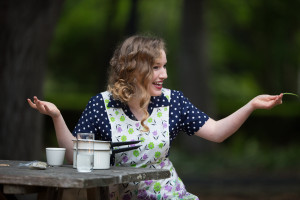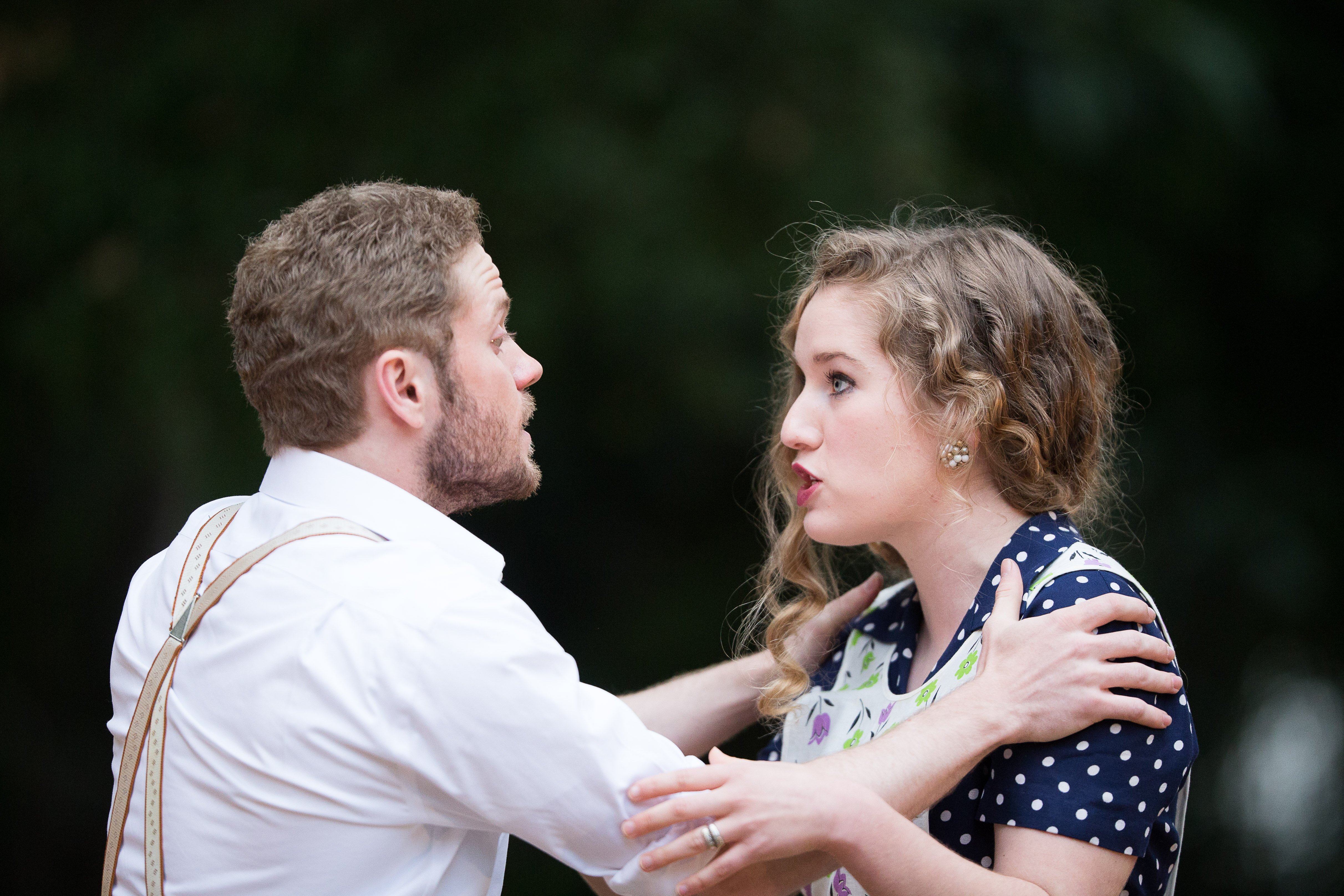This Thursday, Friday, and Saturday in Kennedy Grove, a lovely outdoor space between the Stanford Faculty Club and Humanities Center, the Stanford Theater Laboratory is presenting Arthur Miller’s “All My Sons,” a powerful drama about the powerful effects that our actions have on others. Despite the unseasonable windy cold weather, the cast, clad in breezy 1940s-style cotton dresses and dress shirts, shows no sign of discomfort and delivers a riveting performance that picks up in momentum as the play goes on.

Framed by swaying trees and the old-fashioned Kingscote Gardens building in the background, the cast seems to be transported to a simpler time. Well, simple, that is, until the drama of the play begins to grow as the daylight slowly fades, enhancing the visual effect of the unique venue choice. In the play, the Kellers, a family made wealthy by father Joe’s (Austin Caldwell ’15) factory, enjoy the American dream save for one tragic fact — their son, Larry, went missing in World War II. Caldwell maintains a large stage presence throughout, effectively conveying his character’s confident personality and underlying mysteriousness. He has been under investigation for shipping out faulty parts that resulted in the deaths of twenty-one men, but he was exonerated. The play’s mystery surrounds who was at fault for the damaged parts and what truly happened to his son Larry.
The cast struggles to find its tone at first and their interactions are fraught with forced cheer. There is little early chemistry on stage in the scenes when the Kellers’ neighbor, Frank (Alan Cope ’13, delightfully clueless), attempts to find out what Larry’s horoscope was for the day he died to share with Kate Keller (a multifaceted Lillian Bornstein ’18), who refuses to accept her son is dead. However, as the show goes on and the tension builds, the actors stun with their emotional turns. As Chris, Larry’s brother who wants to marry his formerly betrothed Ann (Shelby Mynhier ’17), Brady Richter (’15) shows great range as an actor, flying effortlessly from fits of impassioned rage to profound tears in the closing scenes. All the actors come together, play off one another and create a truly moving drama.
The outdoor setting of “All My Sons” lends itself to an intimate, though cold, theater experience. Sounds on stage are heightened; when actors step on leaves, they crackle sharply, which in turn adds to the intensity of the actors. The lighting is not complicated, merely illuminating the actors as needed after the sun goes down. This reflects the simplicity of the production as a whole that allows the actors’ talents to shine through. “All My Sons” is not easily forgotten.
Contact Madeline MacLeod at mmacleod ‘at’ stanford.edu.
